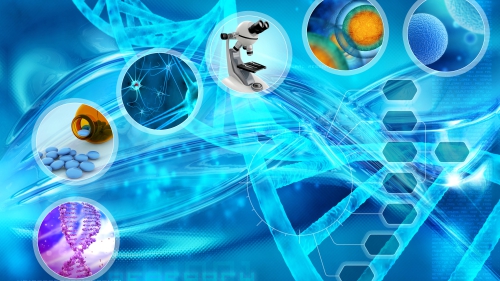Postbiotics

Did you know that our bodies are composed of more bacterial cells than human cells? An estimated 70% of our immune system is located inside our gut (intestines), which is home to trillions of bacteria. Everyone has a different combination of bacteria influenced by their medications, lifestyle, and mother’s bacteria. What is the connection between gut bacteria and our health? It all depends on what bacteria are there and what they are producing.
Chaos happens when bad bacteria set up shop and overpower the good ones. Your intestines are like a fine screen. Bad bacteria start to eat away at this screen, making the holes much bigger. This greatly decreases your intestines’ filter function so that harmful things can easily enter. This is called an imbalanced gut and is a set-up for trouble. It can lead to poor digestion, frequent colds, and an anxious brain. Research from Maria Luca et al. in a 2019 issue of Oxidative Medicine and Cellular Longevity has connected an imbalanced gut to conditions like Alzheimer’s disease and type 2 diabetes. Learning how to help the good bugs thrive and tame the bad ones starts with getting to know our bugs and how they work.
What's at Home in Your Gut?
The good bacteria (probiotics) serve as our security team and fight off all sorts of ugly invaders. They also help us digest food and maintain a good mood. Prebiotics are foods that help the good bacteria survive and thrive. These include a variety of produce, fiber-rich grains (such as bread, cereal, and oats), beans, nuts, and seeds. After eating their food, the good bacteria make postbiotics.
Postbiotics are byproducts of healthy bacteria. They include short-chain fatty acids (such as butyrate), functional proteins, extracellular polysaccharides, and more. Their benefits are similar to those of probiotics in that they:
- Provide a strong defense system
- Control inflammation
- Manage hunger and fullness signals
- Control blood sugar
- Improve cardiovascular health
- Relieve pain from irritable bowel disease
- Reduce symptoms of allergies
How Is the Environment?
An environment of excess sugar and highly processed foods promotes the growth of bad bacteria, which create toxins and put your body into an inflammatory state. Simply adding in probiotics or postbiotics at this stage will not help because the good bugs cannot survive. Try to eat a balanced diet and make sure to include fiber-rich foods. This helps you and your bacteria. Bugs can change quickly and crowd out the less healthy ones.
The types of bacteria inside your gut and what they produce in the body often change due to illness, poor dietary habits, high intake of animal protein, stress, or medications. Increasing the beneficial bacteria and their byproducts helps the body return to a balanced state. A good example is the postbiotic butyrate. A 2021 study from Tulika Arora and Valentina Tremaroli in Frontiers in Endocrinology showed that increased levels of butyrate-producing bacteria reduced triggers related to inflammation and type 2 diabetes. According to a 2020 study by Hao Wu et al. in Cell Metabolism, the same mechanism supported overall health in the subjects and prevented progression from prediabetes to type 2 diabetes.
The best way to increase your postbiotics naturally is by eating more foods with probiotics and prebiotics. This way, you are getting the benefits of all three. The best part is that these foods can easily be incorporated into dishes from various cultures. Supplements often provide a single nutrient, while food contains a mix of nutrients that work in synergy.
Who Can Benefit from Supplements?
Individuals who cannot take probiotics due to their risk of infection (for example, those with weakened immune systems, chronic digestive disorders, or a recent surgery; cancer patients; those who are pregnant; or young children) may find that postbiotics are a safer alternative. There are no live bacteria being introduced into the body: postbiotics are simply their byproducts.
Those with irritable bowel syndrome may need to avoid prebiotic foods, as they cause bloating and other digestive issues. This population can also benefit from postbiotic supplements.
All supplements come with their set of risks and benefits. It is imperative to speak to your healthcare provider about your condition to see if supplements are a good choice for you.
Closing Thoughts
Our gut bacteria share a direct link with many body systems. It is a two-way street where a disturbance at one end will cause trouble at the other. The best way to keep things moving in harmony is to maintain consistency with good habits. Your good bacteria will be in top shape, and you will feel better because your body will respond better on a daily basis.
What is more important is what you do most of the time, not necessarily all the time. No one can judge that better than yourself. Eat food that is good for you, but make some room for your favorite treats. They are important, as they provide satisfaction and meaningful enjoyment.
Summaya Ali holds a master’s degree in nutrition from the University of Illinois and is a registered dietitian. She is a regular contributor to Halal Consumer Magazine. She works with a variety of conditions, and two of her favorite areas of practice are chronic kidney disease and cardiovascular disease.
Reprinted from the Spring 2022 issue of Halal Consumer Magazine with permission from IFANCA (Islamic Food and Nutrition Council of America) and Halal Consumer Magazine.

















